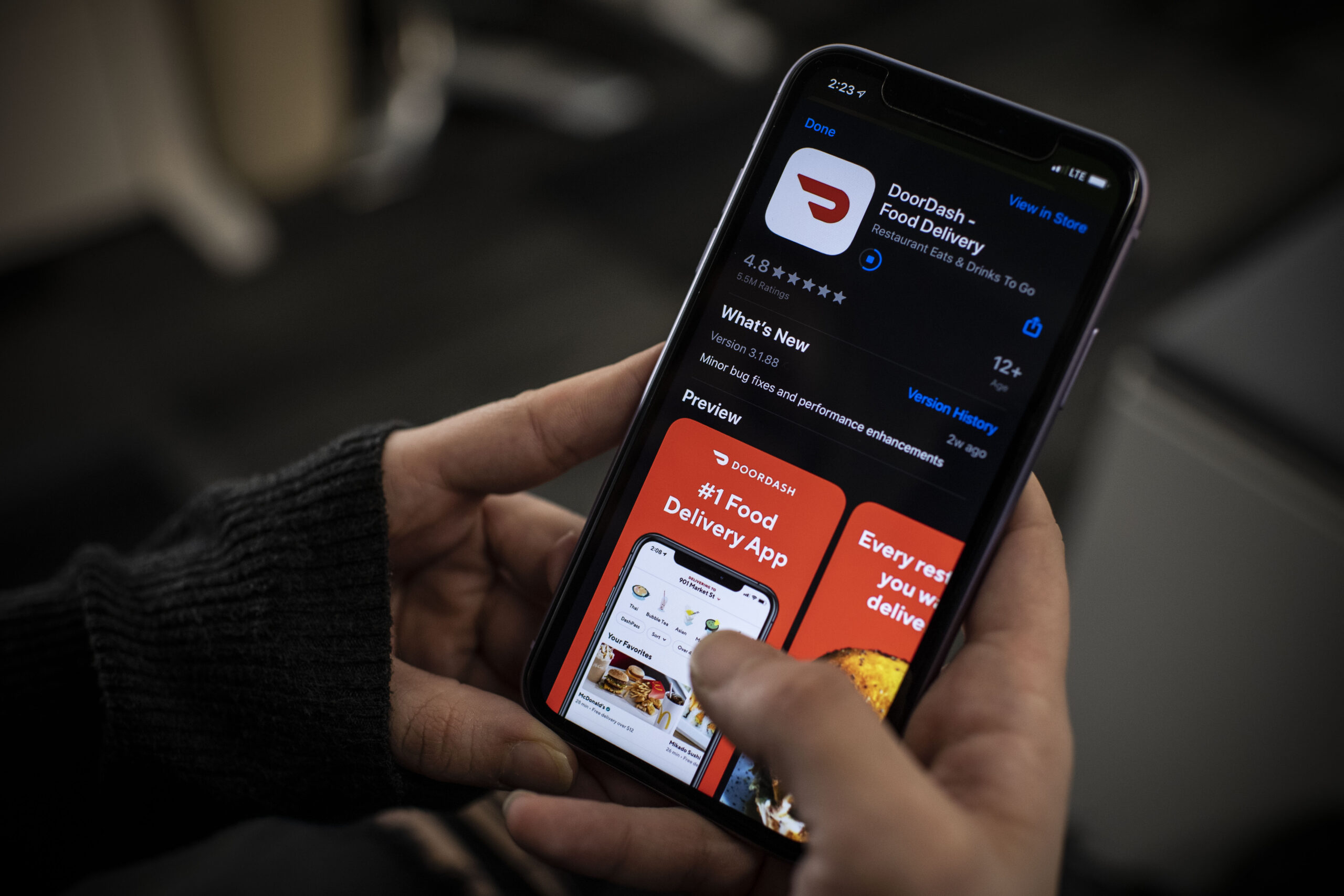DoorDash set records for total orders and revenue in the second quarter as its grocery and convenience deliveries accelerated and it improved driver efficiency.
The San Francisco-based delivery company said Wednesday that its total orders rose 25% to 532 million for the April-June period. That was ahead of Wall Street’s forecast of 521 million, according to analysts polled by FactSet.
Revenue rose 33% to $2.1 billion, which was in line with analysts’ forecasts.
DoorDash raised its full-year forecast Wednesday. The company said it now expects gross order values between $64.2 billion and $65.2 billion for the year, up from the $63 billion to $64.5 billion previously forecast. DoorDash expects adjusted pretax earnings between $750 million and $1.05 billion, up from a range of $600 million to $900 million.
DoorDash’s shares rose 5% in after-hours trading.
DoorDash Chief Financial Officer Ravi Inukonda said the company is continuing to see growth in users and those customers are ordering more frequently. The 10-year-old company still delivers primarily from restaurants, but added grocery delivery in 2020 and convenience store delivery in 2021. Deliveries from sporting goods stores, pet stores and florists are also driving growth. The company delivered more than 200,000 flower orders during Mother’s Day week.
“We have become more of a utility and habit,” Inukonda said. “This is a small treat that still delights people. That’s what’s driving growth in the business.”
DashPass subscribers—who get most deliveries free for a $9.99 monthly fee—rose to a new high during the quarter, Inukonda said. The company won’t reveal how many DashPass subscribers it currently has, but said it had 15 million at the end of last year.
Inukonda said innovation—including making it easier for customers to search for products on the DoorDash app—is another reason the company continues to gain market share in all the markets in which it operates. And the company said improved logistics are helping driver efficiency.
The company spent less than it expected on acquiring and retaining delivery drivers. Inukonda said college students are helping boost the company’s driver ranks in the summer. And a newly launched system that lets drivers choose whether to make an hourly rate or be paid by delivery could also help retain drivers.
Still, DoorDash—which has never earned an annual profit—continues to invest heavily in other areas. Research and development costs were up 30% for the quarter, while marketing costs rose 12%. DoorDash offered summer deals to its DashPass customers and worked to gain share overseas.
DoorDash narrowed its net loss to $172 million in the second quarter, from a loss of $263 million in the same period a year ago. The company lost 44 cents per share, which was higher than the 41 cent per-share loss Wall Street forecast, according to FactSet.
Inukonda said that higher-than-expected loss was due to the cost of absorbing employees from Wolt Enterprises, the Finnish delivery service DoorDash acquired in the second quarter of 2022. The results reported Wednesday didn’t include Wolt’s contribution.
In a letter to investors Wednesday, DoorDash Co-Founder and CEO Tony Xu said the company may continue to post losses as it invests in new delivery partnerships, international markets and advertising. But he said he remains confident in the company’s long-term plans.
“I think the world only tends to want to go faster. Customer expectations tend to only go in one direction when it comes to something like delivery, whether that’s with food or other types of items,” he said. “There’s a lot of work and the roadmap ahead is quite lengthy.”
